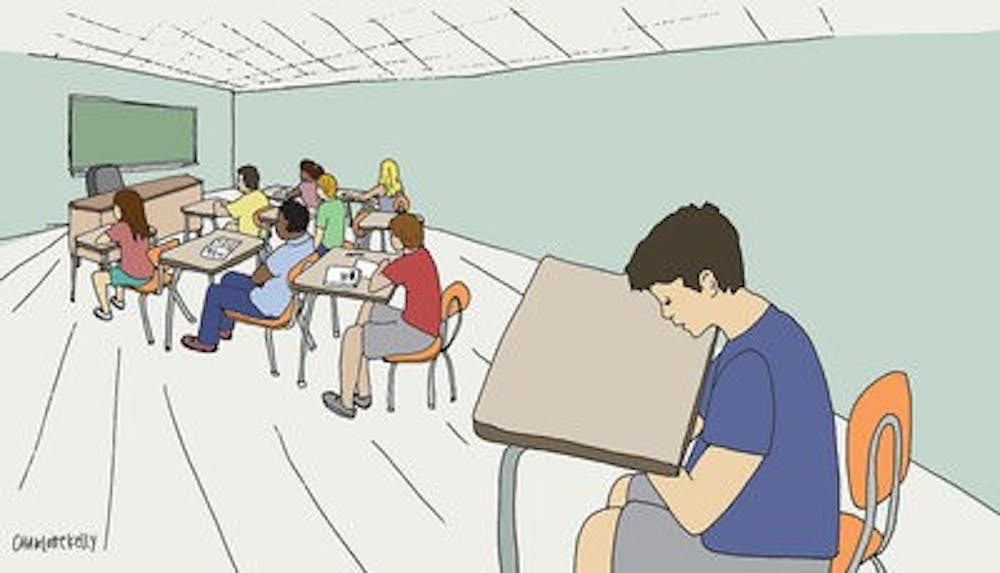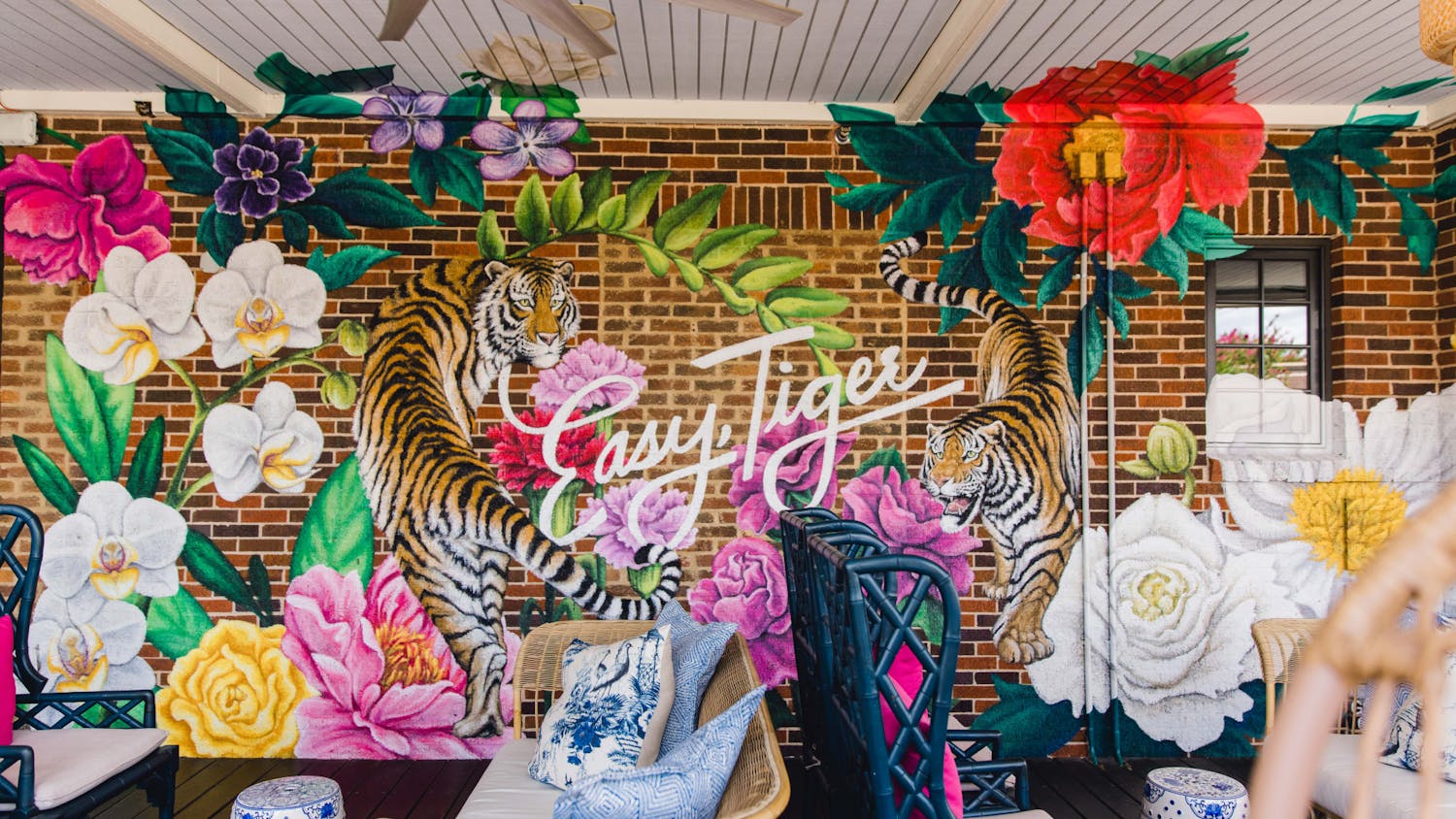Everyone endures periods of emotional distress.
Grief isn't the kind of thing that goes away after a fun weekend out with friends.
Everyone will, at some point, feel heartbroken or lethargic.
Most people will pull through these feelings and readjust to life, but there are some people who do not.
Depression is an illness as real and treatable as the flu or a stomach virus.
The symptoms of depression are apathy, lethargy and general discomfort.
Grief includes bargaining, anger and a lasting pain.
Depression and grief are life-altering states of being.
They can make you feel alienated and, in our society, ashamed.
In many non-Western cultures, grief is expected from the bereaved for months or years at a time after the death of a loved one.
People are expected to be in mourning for more than a few weeks.
Grief often leads to depression, and both take time to run their course, sometimes requiring medication and professional help, and that's okay.
But we don't seem to think so in America.
We shy away from talking to psychiatrists, or when we do, we keep it quiet.
We'll talk about the state of our colon or a migraine we can't shake, but we don't talk about seeing a counselor in public.
We wouldn't want anyone thinking we were crazy.
We live in a society that glorifies numbing our sorrows at the bottom of a bottle.
How many times do we get stressed out and say, "I just really need a drink?"
We're okay, for the most part, with promoting an unhealthy, binge-drinking means of coping with depression and grief, but shy away from healthy cures, such as seeking professional help.
There's something very wrong with that picture.
Visiting a psychologist or psychiatrist is better for you than downing a fifth of liquor.
Our age group is one of the most prone to commit suicide.
As college students we're under constant pressure to do well in our classes, graduate, find love and get a good job in a dead job market.
Many of us are living like bad stereotypes--broke and stocking our cabinets with Ramen noodles and cheap beer.
We're under a tremendous amount of stress from college.
So when tragedy strikes--when a loved one dies, when we fail a class, when we run out of money--where do we turn?
Why are we more likely to grieve and hurt in secret than seek out professional help?
We're in an extremely fortunate position at Auburn University, where we have free counseling services as long as we're students.
Doug Hankes, director of Student Counseling Services, said the number of student visits to the clinic is growing.
"It's my 16th year here, and every year there is an increase in students who use the clinic," Hankes said. "I think we had about 1,500 students visit last year."
While more students are beginning to take advantage of the services offered by the university, Hankes said there is still a need to combat the negative stigmas associated with things such as depression, grief and anxiety.
"[With a mental illness], it's not visible, you can't see something, so it feels less real," Hankes said. "If you break your leg, you can take an X-ray, put a cast on it, but with anxiety and depression people tend to assume it's a lack of willpower. You should just pull yourself up by your bootstraps and get better."
One way to begin fighting these notions, Hankes said, is to stop viewing these conditions as weaknesses.
"It's more a sign of strength and willpower to seek out resources," Hankes said.
Change won't come, though, if the conversation surrounding mental illnesses and grief doesn't change.
According to the American Foundation for Suicide Prevention, only 30 percent of people who are depressed seek help.
In Alabama, suicide is the second-leading cause of death of young people.
Maybe if the conversation changes, those numbers will change too.
If you or someone you know is struggling with depression, grief or another issue, you can reach the Student Counseling Services office is 334-844-5123, or you can visit them in person on the second floor of the Auburn University Medical Clinic on Lem Morrison Ave.
Do you like this story? The Plainsman doesn't accept money from tuition or student fees, and we don't charge a subscription fee. But you can donate to support The Plainsman.





